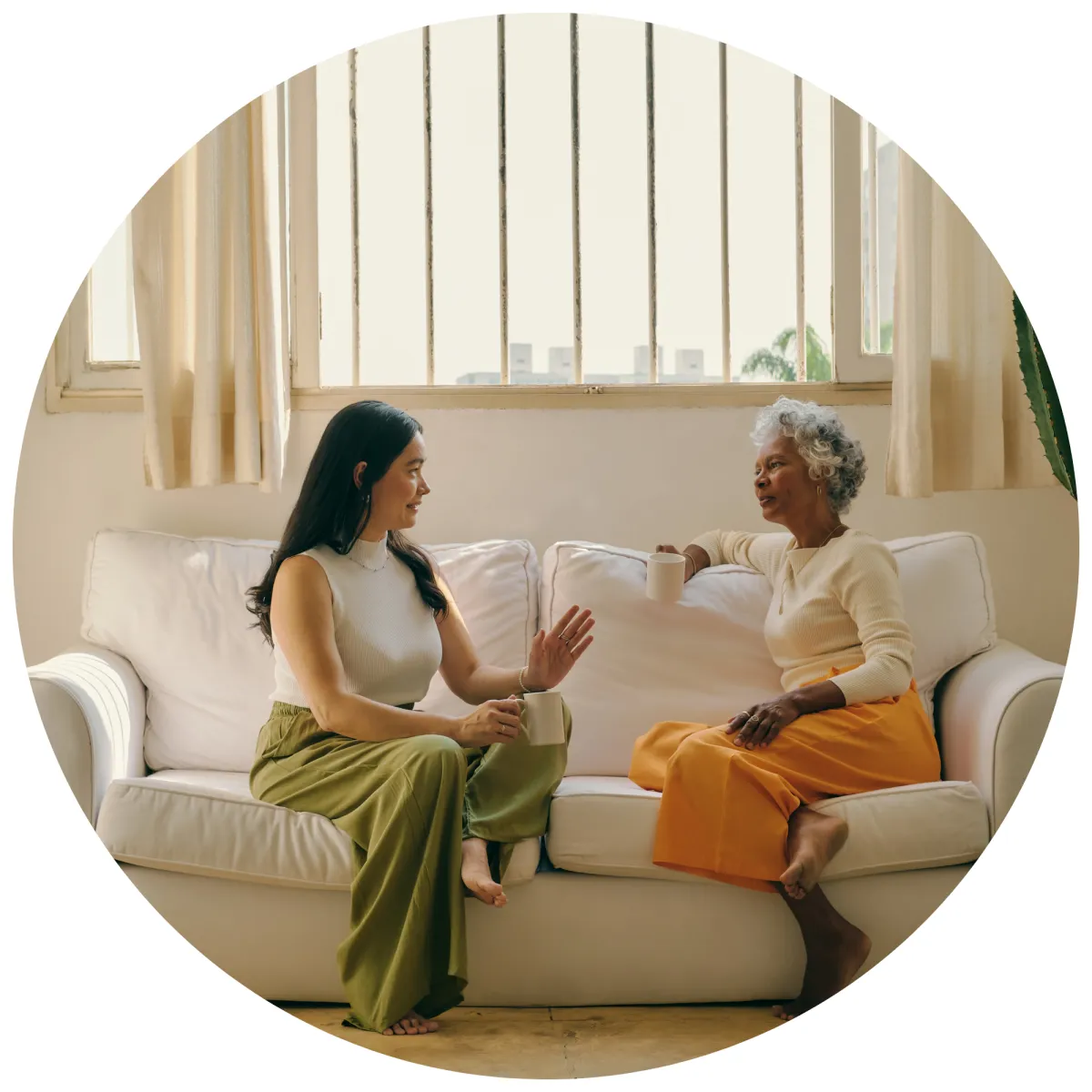The
AUSTRALIAN WOMENS HUB
Giving all Australian Women the key information, support and
networks they need, all in one place!
Because you deserve it.

Your #1 priority - your health
- Health Checklist per decade
- Where to get additional help - genuine resources
-Understanding Medicare and Private Insurance

Realistic and Edible Nutritious Tips
Sick of fad diets, weighing your food, etc etc.... us too! We are busy, sick of gimmicks and hard sells and just want quick and super easy suggestions to get our health back on track.

Exercise for the super busy woman
Don't have a lot of time, not a real gym gal, we hear ya sista.

I just want to sleep.......
Sleep deprivation can be bloody cruel. Get the experts guidance on works.

Your critical cancer checks and support
OUR PODCAST SERIES - Keeping it Real with Susan and Friends
We have a number of fabulous in person and online courses, workshops, webinars and events launching soon.
Season 1: #enoUgh - We interview experts and survivors of domestic and family violence.
Season 2: Women's Wellness - We interview experts
Thank you to our wonderful sponsors and ambassadors
Discover the heart of expertise and influence! Learn why exploring Our Ambassador and Panel Members is your gateway to visionary leadership and impactful insights.

Telling your Partner you want a Separation or Divorce
Regardless of who has made the decision or how your relationship has been to date, telling your partner that you want a separation or divorce is likely to be one of the most difficult, painful and memorable conversations you are likely to ever have. It is often a conversation that both parties remember clearly for the rest of their lives, so take some small steps to get it right.
It is important to realise that the way in which you discuss this may set the tone for your future discussions and potentially increase OR decrease your chance of positively negotiating your future conversations regarding financials, family and the next phase of your lives.
TIPS
Planning the discussion
• Have you considered having counselling together or at least personally speaking with a counsellor, psychologist, separation coach to help you consider your emotions, options and plans. Family Counselling Support Network can assist. www.familycounsellingsupportnetwork.com. Speaking with your GP is often also highly recommended to ensure there are no medical reasons contributing to the way you are feeling.
• Make sure you are certain of your final decision before you break the news to your partner as it is very stressful and often emotionally difficult to come back from this type of disclosure if you change your mind.
• Consider what will be the best day, time and conditions to have this discussion so it is as amicable, respectful and calm as possible under the difficult circumstances. Ideally it should be done face to face (not via a text, a note, or via a third party) and when no one else is home, especially children. You may choose to go to a neutral place such as coffee in a park where you aren’t distracted or conscious of being the object of attention. Most importantly, make sure that your intention is not blurted out in the middle of heated discussions and avoid late at night or on a day which corresponds with important events such as celebrations or family holidays.
• Consider how will you remain safe throughout this discussion and afterwards? Do you need to consider having the discussion in conjunction with a counsellor? If you are leaving an abusive or violent partner, do you need a safe exit plan, a restraining order or emergency accommodation assistance? In an emergency call police 000.
• Have you considered your partner’s reaction, the likely questions that you will be asked and how you will respond to them? Are they likely to be surprised? Deeply emotional? Aggressive? Some people consider marriage a lifelong commitment and may be really surprised by your announcement. Often people are in denial and do not seem to absorb what is being said and perhaps the finality of your decision. Watch for the possible breadth of reactions, acknowledge their feelings and show empathy.
• Who is staying in the home and who is potentially leaving, and where the children and pets will immediately go, are likely to be the first issues raised. It is important to have thought through these issues so that solutions are more easily explored.
Planning the discussion
• When delivering your decision to separate or divorce, the key is to be kind, direct and not highly emotional. Examples of how you might raise it include, “I am unhappy and would like to live apart for six months. During that time, I am open to having more counselling to see if we can make it work.” Or “We have tried counselling but unfortunately I am still not happy and I would like to move towards a more permanent step to separate” or “I have been unhappy in our relationship for a long time and I would like to see if being apart improves things for us all.”
• Then deliver the terms, for example, “I would like you to live at your parents for a few weeks and I can remain here with the children until we work out the next steps”, or “I am going to visit my parents for the week to give you time and space to move out,” or perhaps if you are amicable and it is safe, you could suggest, “You are welcome to stay in the other bedroom until we sort out what we are going to do next.”
• Regardless of how the other person reacts, try not to get highly defensive, blaming and remember to acknowledge their emotions. Try to remain calm and supportive and continue to state your position - “I am sorry, I know this isn’t what you want to hear but we have tried our best, and I can’t do this anymore and I want to separate."
• Give your partner time and space to process what you have said. Don’t immediately proceed with details of what you are proposing in terms of parental and financial settlements, but it is a good time to suggest you want to work with them to ensure you sort things out as amicably as possible as you move forward.
• Try to calmly agree together on how and when to tell the children and other family members and friends, allowing a respectful period of time to digest the details.
This site is brought to you by Family Counselling Support Network
Book in directly with one of our professionals today


We are committed to protecting your personal information and respecting your privacy. This website uses cookies to analyze website traffic and optimise your website experience. By accepting our use of cookies, your data will be aggregated with all other user data.
DISCLAIMER: The material contained on this website is for general educational and information purposes only and is not a substitute for professional legal, financial, medical or psychological advice or care. While every care has been taken in the information provided, no legal responsibility or liability is accepted, warranted or implied by the authors or Family Counselling Support Network and any liability is hereby expressly disclaimed. For specific advice please contact us at [email protected]. All information contained on the website remains the intellectual property of Family Counselling Support Network and is for your personal educational use only. The information must not be reproduced or distributed without the express permission of Family Counselling Support Network.
Family Counselling Support Network acknowledges and respects the First Nations Custodians of the land where our offices stand, and where we work to help Australians. We pay respects to their Elders, past present and emerging, lore, customs and creation spirits. We recognise that these lands have always been places of ceremony, teaching, research and learning, and we acknowledge the important role Aboriginal and Torres Strait Islander peoples play in our community.
We are committed to providing an inclusive and accessible environment where people and communities of all identities and backgrounds are accepted, safe and celebrated.
Privacy Policy | Terms and Conditions


















